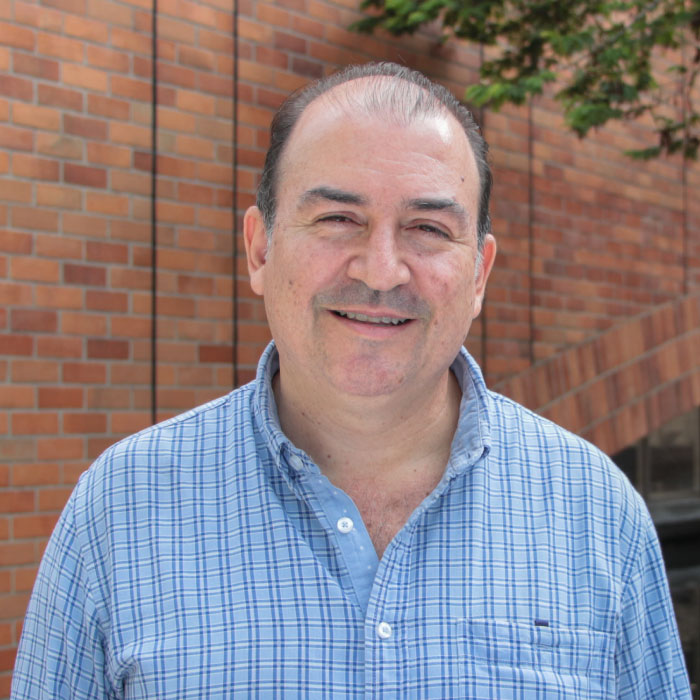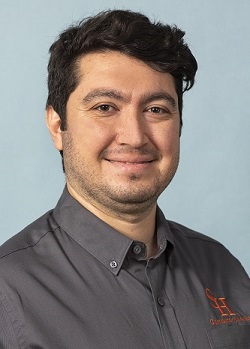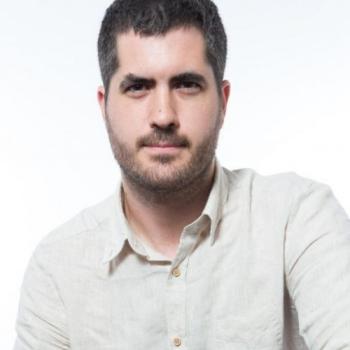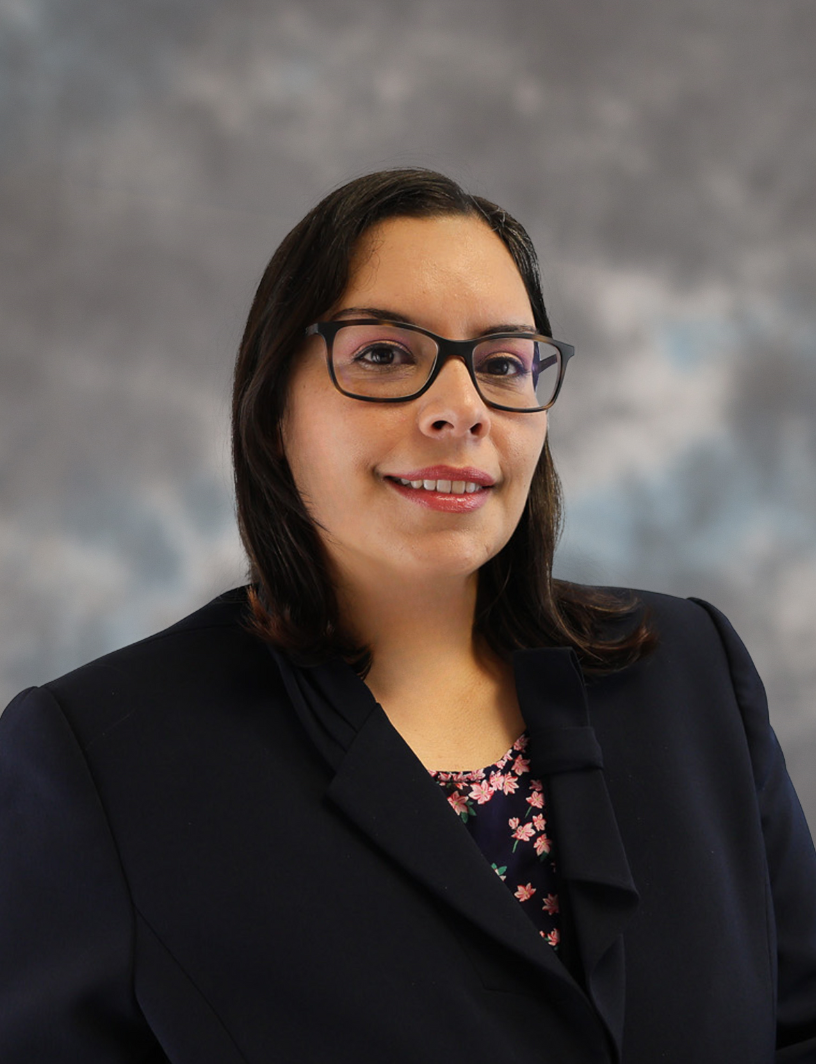Virtual Graduate Study Consortium (VGSC) WORKSHOP at LACCEI
This 2 hours workshop is an opportunity to learn more about the IEEE SA standards sponsored by IEEE Education Society (EdSoc), the IEEE SA Std. 1876-2019 on Networked Smart Learning Objects for Online Laboratories and IEEE SA P2834 Standard for Secure and Trusted Learning Systems co-sponsored by IEEE Industrial Electronics Society and IEEE Computer Society / Learning Technology Standards Committee. This event offers students, faculty, and industry members the opportunity to collaborate around the EdSoc Virtual Graduate Study Consortium (VGSC) and motivate their future participation in IEEE SA working groups.
Date and Time
Location
Hosts
Registration
-
 Add Event to Calendar
Add Event to Calendar
- Contact Event Hosts
- Co-sponsored by LACCEI (Latin American and Caribbean Consortium of Engineering Institutions)
Speakers
Dr. Hamadou Saliah-Hassane of TECHNOSULT inc
Presentation of the IEEE Education Society Virtual Graduate Study Consortium (VGSC)
In this enlightening session, Dr. Saliah-Hassane will present an update on the IEEE Education Society Virtual Graduate Study Consortium (VGSC) Initiative, approved by its Board of Governors on June 22nd, 2021. VGSC, a Virtual Organization initiated and sponsored by the IEEE Education Society, involves collaboration with other IEEE organizational units, academic partners, and industrial partners.
The VGSC development follows a participatory action research approach, similar to the one used for the development of IEEE Standard 1876 - 2019. This approach involves volunteer teacher-researchers and IEEE members, including IEEE Education Society members and working group partners. Participants include committee members from IEEE Transactions on Education Editors and IEEE Transactions on LearningTechnologies
Biography:
Professor Saliah-Hassane earned a PhD in Electrical and Computer Engineering from McGill University in Montreal, a Bachelor and Master of Applied Science degree from École Polytechnique de Montréal, Canada. He just retired as a full Professor from TELUQ University in Montreal where he taught Informatics and Computer Networks and Security. He is now an Associate Professor in several universities including University Abdou Moumouni in Niger and an he is also an Affiliate Professor at Florida Atlantic University in US. His research interests are on Intelligent Distributed Systems and Mobile Robotics.
Professor Saliah-Hassane is the current Vice President Educational; Activities of IEEE Education Society (2022-2024). He chaired the Montreal IEEE Education Society Chapter (2005-2022). He was the Past Chair of IEEE Education Society Standards Committee (2010 - 2021) and the Past Chair of the Working Group of the joint standardization activity on “Secure and Trusted Learning Systems” (2019 -2021) sponsored by IEEE Education Society, IEEE Industrial Electronics Society (IES) and IEEE Computer Society Learning Technology Standards Committee (CS/LTSC).
Professor Saliah-Hassane has received many awards in recognition of his accomplishments, including the IEEE Education Society’s EdWin C. Jones, Jr. Meritorious Service Award (2019) and a recognition of Commander of the Order of Academic Palms (2022) from the President of Republic of Niger, his home country. And aligned with his work on Distributed Embedded Systems, the IEEE Standards Association award with appreciation for chairing and contributing to the development of IEEE Standard 1876™ - 2019 on “Networked Smart Learning Objects for Online Laboratories” (2019), the IEEE SA 2019 Emerging Technology Awarded to IEEE SA 1876™ - 2019 Working Group.
Email:
Address:Montréal, Canada, H3L 2L6
Dr.Carlotta A. Berry of ROSE-HULMAN INSTITUTE OF TECHNOLOGY
Robotics For The Streets: Open-Source Robotics for Academics and The Community
This 45-minute workshop will present open-source robotics platform, Lily∞Bot, including hardware, software and electronics. These robots are designed accessible, inclusive and flexible to grow with the user from novice to expert. This is accomplished with extensive online learning resources, battery modules, and controller modules for platforms such as Micro:Bit, Circuit Playground Express, Arduino, and Raspberry Pi Pico W. There will also be a discussion of how an open-source robot may be used to meet some of requirements of the IEEE Standard for Networked Smart Learning Objects for Online Laboratories. This is an interactive workshop with a hands-on component using a physical robot for in person participants. Finally, the workshop will end with a survey or brainstorming session on how participants could use the Lily∞Bot to meet their engineering education goals and/or the IEEE Standard for Networked Smart Learning Objects for Online Laboratories (IEEE Std 1876™-2019).
Link to slides:
https://docs.google.com/presentation/d/1HMn3Wu4UnejpBZ5ZmZXGkBqCpn-ne_sQeKMGWof-9ew/edit?usp=sharing
Link to JamBoard for Brainstorming:
https://jamboard.google.com/d/1QfUitVKpfGW4yfIKrBbUdJ6mnq8F9cuXU-jf5AAWQ0s/edit?usp=sharing
Biography:
Dr. Carlotta Berry’s areas of expertise include educational mobile robotics and enhanced human-robot interfaces. Also specializing in recruitment and retention activities for underrepresented populations in electrical and computer engineering, she helped found the Rose Building Undergraduate Diversity (ROSE-BUD) program, which she co-advises. Dr. Berry also helped start and currently co-directs the multidisciplinary robotics program, and is an organizer and judge for FIRST Robotics competitions. One of her recent projects with students involved using mobile robot platforms to remotely command robots to perform tasks
Email:
Dr. Luis Felipe Zapata-Rivera
Biography:
Luis Felipe Zapata-Rivera earned the Ph.D. degree in computer engineering from Florida Atlantic University and the M.S degree in engineering from the Eafit University and the bachelor’s degree in systems engineering from the same institution in Medellin-Colombia. He currently works as an Assistant Professor at Embry Riddle Aeronautical University, Prescott, AZ, USA. He worked as a Research Assistant at LACCEI and he is the Vice-Chair of the P1876–Networked Smart Learning Objects for Online Laboratories standard working group of IEEE. In the past, he worked as a Researcher Assistant at Eafit University. His research areas include online laboratories, online assessment systems and IoT systems. He has developed software systems for the automatic assessment (computer-based assessments), platforms for the management of online laboratories. He has published several conference and journal papers on online laboratories, assessment tools for education and software architectures.
Dr. Idalis Villanueva
Understanding the ethics and safeguards for human subject research in engineering education and practice
There is a growing interest globally to include user studies and human experiences, perceptions, and behaviors in the develop of societal solutions. How can engineers include humans in studies ethically, responsibly, and with the proper safeguards? This workshop will introduce key considerations and terms and discuss a case study as a collaborative exercise.
Biography:
Dr. Idalis Villanueva Alarcón is an Associate Chair for Research & Graduate Studies and a tenured Associate Professor of Engineering Education in the University of Florida. In 2019, she received the White House Office of Science, Technology, and Policy's Presidential Early Career Award for Scientists and Engineers (PECASE) award for her 2017 National Science Foundation CAREER project on hidden curriculum in engineering. Her work has propelled her to be a prominent, national thought leader in diversifying the engineering education and workforce. She has a B.S. degree is in Chemical Engineering from the University of Puerto Rico at Mayagüez and a M.S. and Ph.D. degree in Chemical and Biological Engineering from the University of Colorado-Boulder. Also, she completed her postdoctoral fellowship from the National Institutes of Health in Analytical Cell Biology in Bethesda, Maryland and worked as a lecturer for 2 years before transitioning to a tenure-track in engineering education.
Dr. Juan Guillermo Lalinde of Universidad EAFIT
Overview and update of the Ongoing Development of IEEE Standard P2834 on Secure and Trusted Learning Systems
The main sponsor of this standard development process is IEEE Education Society. It is also jointly co-sponsored by EEE Computer Society/Learning Technology (C/LT) and IEEE Industrial Electronics Society (IES). The purpose of standard is to specify the technical requirements and conformance criteria that help learning systems comply with the most common student data protection regulations that exist in K-12 and Higher Education.
Need for the Project: As educational institutions increasingly embrace automation, issues involving the protection of student data have become critical to market adoption of new technologies: competency management, universal student records, AI tutors, immersive practice environments, and many more. National and regional regulations are now appearing, requiring a variety of assurances and protections of users’ data in all systems, with some special restrictions for data concerning children and students. As institutions adopt cloud-based software services as part of their distance-education or blended-education offerings, the data security issues become even more complex and more critical to the acceptance of these new online service offerings. There is a need for standards that developers of Learning systems can follow and third parties can test against to provide the market with confidence that student data is properly protected and managed.
The development process involves some stakeholders such as Schools, Colleges, universities, publishers, educational software and hardware vendors, educators, students, student parents, national and international educational institution policy makers and managers.
The session will present progress made by the Working Group members and will mainly emphasize on the Security Governance team effort.
Biography:

Juan Guillermo Lalinde Pulido, faculty representative to the Board of Directors, is a systems engineer from Universidad EAFIT, a mathematician from Universidad Nacional and a PhD in Telecommunications from Universidad Politécnica de Valencia, Spain. The research professor at EAFIT was head of the Department of Systems Engineering and of the undergraduate program in Systems Engineering. He was coordinator of the master's degree in Computer Engineering and member of the Engineering Doctorate Committee.
He has also been a visiting researcher at the Institute for Human and Machine Cognition (IHMC), in Pensacola, Florida, USA, and Purdue University, in Indiana, USA. He was advisor to the Electronics, Telecommunications and Informatics (ETI) program of Colciencias. He is currently the scientific director of the scientific computing center APOLO at Universidad EAFIT and coordinator of the master's program in Data Science and Analytics.
He has participated as a consultant in recent years accompanying the Ministry of National Education in Information Security issues and in the creation of the CSIRT for the education sector. He is a member of the Blockchain Lab at EAFIT University and professor of the Quantum Computing course. Additionally, he is certified as an instructor in Quantum Computing and Cybersecurity by IBM.
Address:Medellín, Colombia
Cihan of Sam Houston State University
Overview IEEE SA P2834.1 Standards On Digital Forensics on Trusted Learning Systems
In conclusion, digital forensics offers a distinct set of skills and knowledge that complements P2834 (Standard for Secure and Trusted Learning Systems), underscoring the need for a dedicated section within the broader learning systems framework.
Biography:

Dr.Varol is a Professor in the Department of Computer Science at Sam Houston State University. He received his Bachelor of Science degree in Computer Science from Firat University, Elazig, Turkey in 2002, Master of Science degree from Lane Department of Computer Science and Electrical Engineering from West Virginia University, Morgantown, WV, USA in 2005, and Doctor of Philosophy in Applied Computing from University of Arkansas at Little Rock in 2009.
His studies have led to more than 80 peer-reviewed journal and conference publications and two book chapters. He has been an external reviewer for numerous prestigious journals, including IEEE Transactions on Automation Science and Engineering (IEEE TASE), ACM Journal of Data and Information Quality (ACM JDIQ), and Elsevier Expert Systems with Applications. He serves as a co-chair for the International Symposium on Digital Forensics and Security (ISDFS) events. Also, he is currently the subgroup chair in IEEE’s P2834 – Secure and Trusted Learning Systems project, in which the group is creating security and digital forensic readiness standard for Learning Management Systems.
Pablo of LabsLand
LabsLand: Scaling up remote labs: real-time and ultraconcurrent labs
Remote laboratories increase the time that students can use the laboratory equipment, sharing the equipment effectively. Depending on the field and learning outcomes, there are multiple approaches that can be used. In the presentation, LabsLand real-time labs and ultraconcurrent labs will be presented.
Biography:

Pablo Orduña, PhD, is the co-founder and CEO of LabsLand (San Francisco, California), a global network of remote laboratories. Pablo Orduña is IEEE Senior Member and has served as Vice-Chair of IEEE Education Society Standard Committee (2015-2018) and was involved in the development of the IEEE SA 1876 -2019 Standard on Networked Smart Learning Object for Online Laboratories. He obtained his PhD at the University of Deusto (Spain) in the field of remote laboratories.
Dr. Manuel Macias
Dr. Manuel MaciasDr. Manuel Macias
Biography:

Manuel Eduardo Macías García holds a PhD in Engineering with a specialty in Power Electronics from the Technical University of Dresden in Germany. His areas of interest are electronic power converters and control of electrical machines, as well as innovation and technology for engineering education. He is a full-time professor in the Department of Electrical and Mechatronic Engineering of the Tecnológico de Monterrey, and coordinator of the Power Electronics, Automation and Industrial Networks and Teleengineering Laboratories. Dr. Manuel E. Macías is the author of Tele-engineering platforms for distance training and coordinator of the Intercampus Network of Remote Laboratories at the Tecnológico de Monterrey. He was responsible for the design and implementation of the Virtual Instrumentation, Power Electronics and Control of Electrical Machines laboratories, as well as the development of training platforms for Automation and Industrial Networks through Virtual Reality environments and Cyber-Physical Machines for the campuses of the Tecnológico de Monterrey.
Agenda
Agenda (Easter Time):
4:00 pm – 4:10 pm Welcome and Introduction IEEE SA Std.1876-2019 (Dr. Luis Felipe Zapata-Rivera)
4:10 pm – 4:20 pm The IEEE Virtual Graduate Study Consortium (Dr. Hamadou Saliah-Hassane)
4:20 pm – 4:30 pm Understanding the ethics and safeguards for human subject research in engineering education and practice
(Dr. Idalis Villanueva)
4:30 pm – 4:40 pm Overview IEEE SA P2834: (Dr. Juan Guillermo Lalinde)
4:40 pm – 4:50 pm Overview IEEE SA P P2834.1 (Dr. Cihan Varol)
4:50 pm – 5:00 pm Industry: LabsLand (™) Scaling up remote labs: real-time and ultra-concurrent labs(Dr. Pablo Orduña)
5:00 pm – 5:10 pm Industry: LAB-VEE (™) (MS. Reymi Then)
5:10 pm – 5:20 pm Laboratorios inmersivos Hibridos (Dr. Manuel Macias)
5:20 pm – 6:10 pm Practical activity Robotics (Dr. Carlotta Berry)




